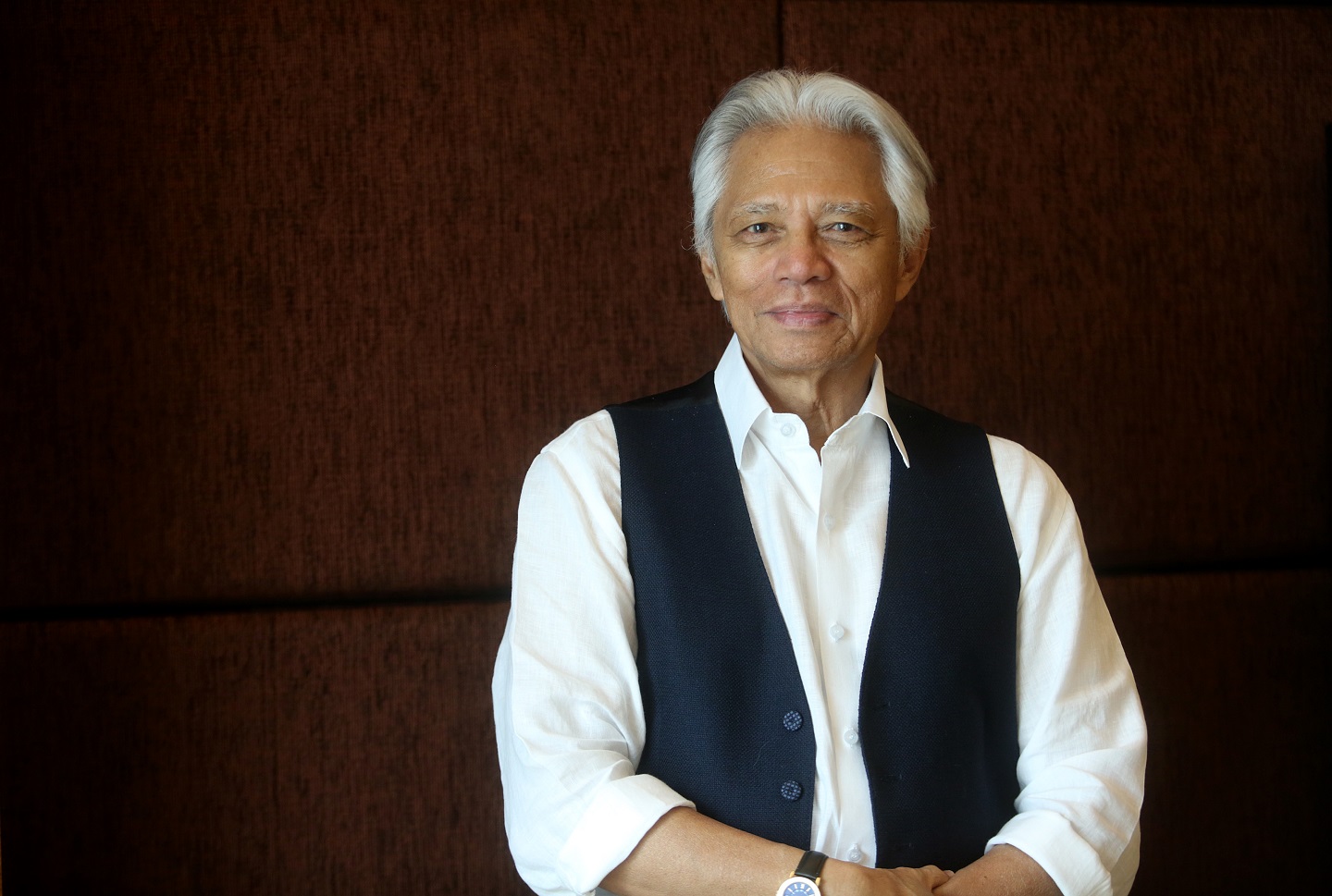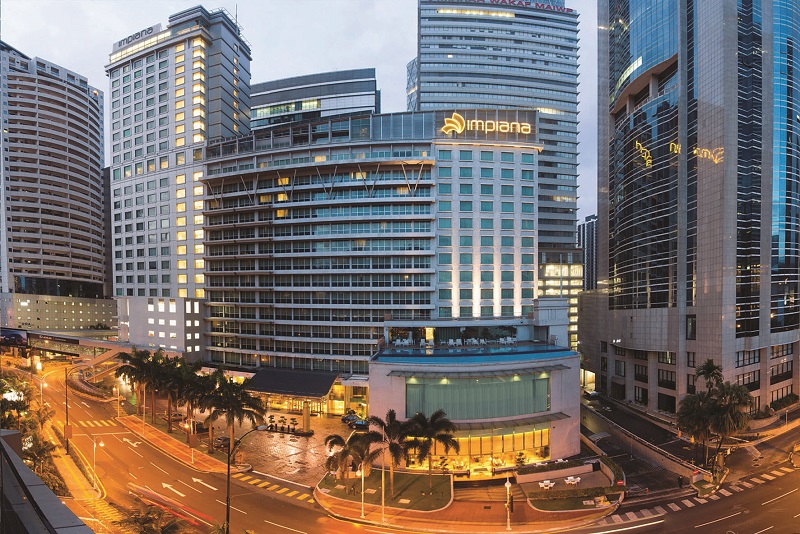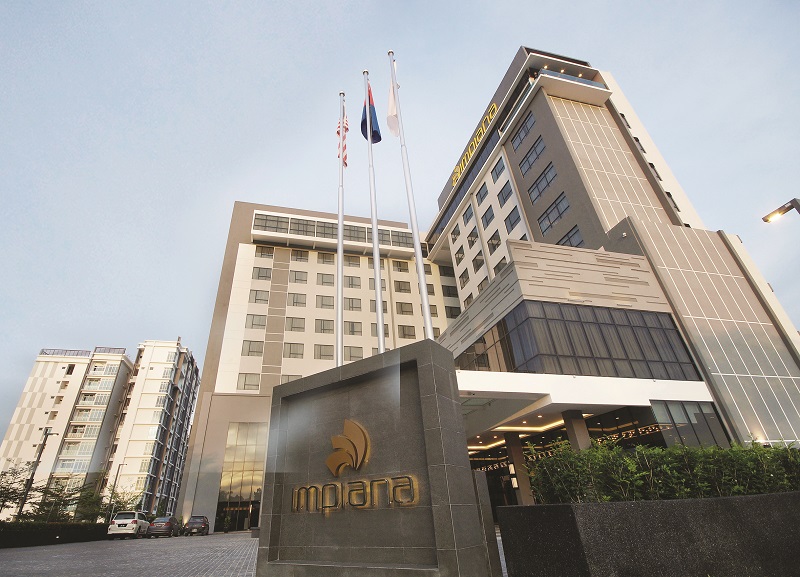
Datuk Seri Farouk Abdullah is executive chairman of Impiana Hotels and is known for his hands-on approach to the entire business (Photo: Sam Fong/The Edge)
All the Impiana Group’s city hotels in Kuala Lumpur, Ipoh and Senai are ideally situated in premium business and mercantile locations while its beach resorts in Cherating, Phuket and Bali are alluringly nestled by sparkling seascapes, surrounded by fragrant flora and fauna. If “location, location, location” is the group’s mantra, its prayers to the gods of hospitality have been answered a thousandfold.
Seasoned hotelier Datuk Seri Farouk Abdullah is executive chairman of Impiana Hotels and is known for his hands-on approach to the entire business. It is his life, he quips, as we settle down for tea in one of Impiana Kuala Lumpur’s sumptuous suites. Farouk has over five decades of experience in the hospitality business, with previous stints at global chains like Hilton and Shangri-La. A pioneer in the local hospitality scene, he founded the Impiana Group in the late 1970s.
impiana_klcc_kuala_lumpur.jpg

With his impressive sweep of white hair and a stylish ensemble, he cuts a distinguished figure indeed. Farouk speaks in careful, considered tones with a slight accent that adds to his overall charm, and I find him to be exceptionally gentlemanly, exuding an almost grandfatherly affection. Clearly, his multiple decades in the hospitality business have enhanced his already pleasant nature.
“I have always been in this industry. I worked for others, but after 10 to 15 years, I thought I’d build and run my own hotel. This was when the country was trying to fund more bumiputera entrepreneurs to start their own businesses — around the late 1970s or so,” he begins. “I had a friend who ran an advertising agency and we were talking about names. I liked the word impian and its meaning, and he suggested we Latinise this word and add an ‘a’ to it. That’s how we got the name and we opened our first hotel in what was then Subang Airport.”
Although that first hotel, which opened in the 1990s, is no more in existence — indeed, Subang Airport as we remember it has also ceased to exist — Impiana has grown to include city hotels and beach resorts in Malaysia as well as Thailand and Indonesia. Farouk and his team continues the group’s expansion with upcoming projects in India and South Korea while giving the Cherating property a major do-over.
impiana_cherating_resort_residence.jpg

“I like resorts. When you go to one, you’re in a different mind frame,” he muses, unwittingly unveiling his bias. “We have private villas in Phuket and Bali and I really enjoy going there. We are looking at a place in India about two hours’ drive from Bangalore. My partners there tell me it’s wonderful, and I am very excited about that destination as well,” he says.
Also a source of great excitement for Farouk and his team is the complete restoration of the Cherating property, which was recently torn down and is being redesigned from the ground up. The masterplan will include a 500-room hotel, top-of-the-line conference amenities, recreational facilities for adults and children alike, a spa and a slew of restaurants that reflect local culinary traditions. “We’re trying to build a destination in our rather lovely 30-acre piece of land,” Farouk shares. “It’s scheduled to be ready in a year and a half, and it’s going to be exciting. To me, the East Coast has always been underutilised. And I think if we can do this, it will give this lovely part of the country some well-deserved attention.”
Impiana’s restoration and expansion efforts come in the wake of a trying economic period for the global hospitality industry. “It’s been quite tough in the last few years. The global hospitality industry has taken a beating,” Farouk says thoughtfully, rubbing his chin. “You’ve got Airbnb, which has really eaten into the hotel business with none of the costs — they have really given us a good run for our money. But the thing with Airbnb is that, at the end of the day, it cannot quite offer the kind of service a hotel can. And if we continue to pursue that human touch which only a hotel can give, we should be able to manage quite well. Airbnb provides accommodation, but a hotel provides an entire experience.”
After so many years in the business, what does he make of it today? Farouk considers my query before replying, “This is a business where you have to please so many people with so many likes and dislikes. You can’t have fixed standards; it always has to improve in accordance to the guests you are serving. Also, no two locations are alike. You see, food, lodging and travel is a very basic need, but one that will always grow. Tourism in Malaysia brings in a lot of revenue, for example. You’re learning new things about it all the time. A hotel 50 years ago and a hotel now are very different, and 50 years from now, it will also be very different. Half of the service will be attended to by robots. The industry changes a lot but produces a very large inflow of foreign earnings. To me, this is so fascinating.”
Farouk is a treasure trove of anecdotes and advice for anyone looking to tread the waters of the intensely competitive hospitality industry. He has no regrets but does not over-romanticise his experiences either. “Some of the lowest points are when you over-gear yourself and you realise you’re building so much and there’s not enough funds coming in. That’s happened to us a few times. It’s quite easy for this to happen too, because it’s nice to keep building but in hospitality, profits take a while to come in. The average is about 12 years, and to wait that amount of time to build another hotel is a long time and that’s why you tend to over-build. Of course, there are high points too, like when all the properties are doing well. We have had those, too.
impiana_hotel_senai_johor.jpg

“I think making the first million is always the difficult part. After that, it gets easier. We’ve now got 15 properties — 10 up and running, five on the drawing board — so in the next five years, if we grow to 50, we will cover most of Asia. That will be my aspiration, I’d say. We have to be regional before we become global. The Maldives is somewhere I’d really like to open in. Australia is a country we should be in, Sydney particularly,” he adds.
As Impiana expands, Farouk falls back on the one part of the company that has remained an inspiration to him all this time — the people who staff it and the passion they have for the work. There is no denying the truth to this — robots may one day take our drink orders, but a thoughtful, human approach to customer service is really what defines the hospitality industry. Unsurprisingly, this is what he finds most inspiring as well.
“At the end of the day, it’s the people who make this business,” he says proudly. “Most of the people we work with in this company have become very passionate about the work they do. When we look at our direction, we find that the people we have are now family. And that, I find, is most wonderful. I don’t know if other industries engender as much passion, but when I see the kind of drive and passion among our people, it is a source of much satisfaction. This is because they are the ones who make the final product as good as it is.”
This article first appeared on June 24, 2019 in The Edge Malaysia.


